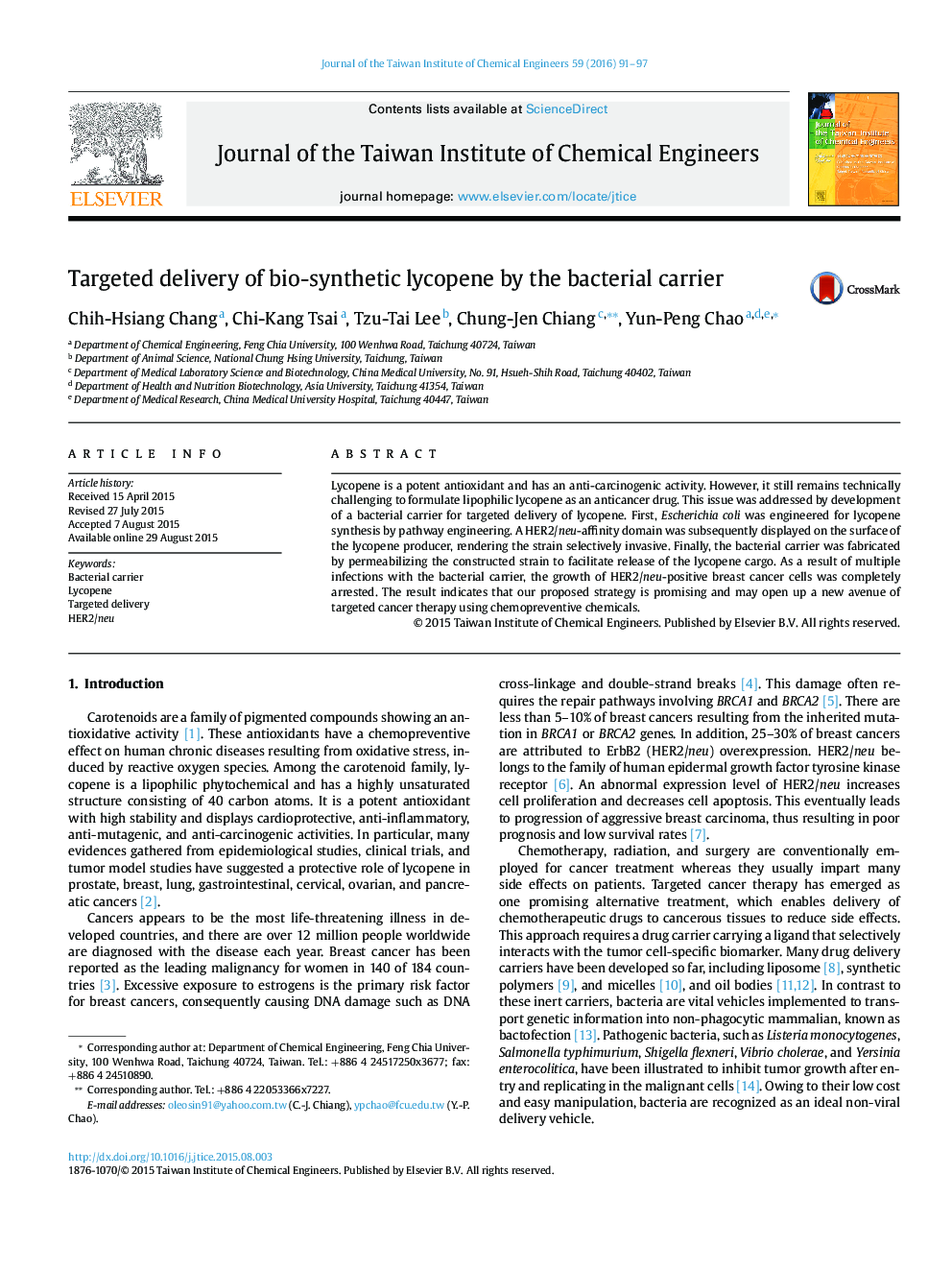| Article ID | Journal | Published Year | Pages | File Type |
|---|---|---|---|---|
| 690526 | Journal of the Taiwan Institute of Chemical Engineers | 2016 | 7 Pages |
•Metabolic engineering of Escherichia coli for lycopene production.•Surface display of a HER2/neu-binding domain on the lycopene-producing strain to selectively invade cancer cells.•Permeablization of the lycopene-producing strain to release lycopene cargo.•Elicitation of anti-proliferative effect on cancer cells by multiple infection of lycopene-loaded bacteria.
Lycopene is a potent antioxidant and has an anti-carcinogenic activity. However, it still remains technically challenging to formulate lipophilic lycopene as an anticancer drug. This issue was addressed by development of a bacterial carrier for targeted delivery of lycopene. First, Escherichia coli was engineered for lycopene synthesis by pathway engineering. A HER2/neu-affinity domain was subsequently displayed on the surface of the lycopene producer, rendering the strain selectively invasive. Finally, the bacterial carrier was fabricated by permeabilizing the constructed strain to facilitate release of the lycopene cargo. As a result of multiple infections with the bacterial carrier, the growth of HER2/neu-positive breast cancer cells was completely arrested. The result indicates that our proposed strategy is promising and may open up a new avenue of targeted cancer therapy using chemopreventive chemicals.
Graphical abstractFigure optionsDownload full-size imageDownload as PowerPoint slide
